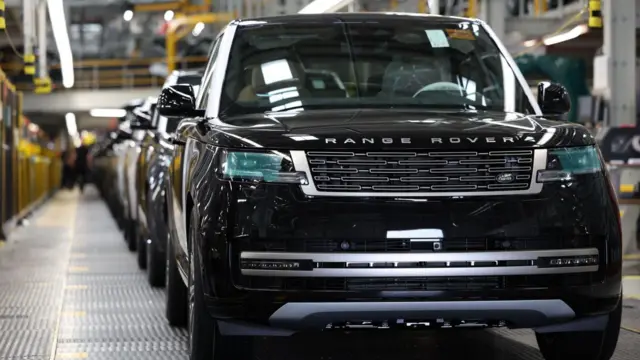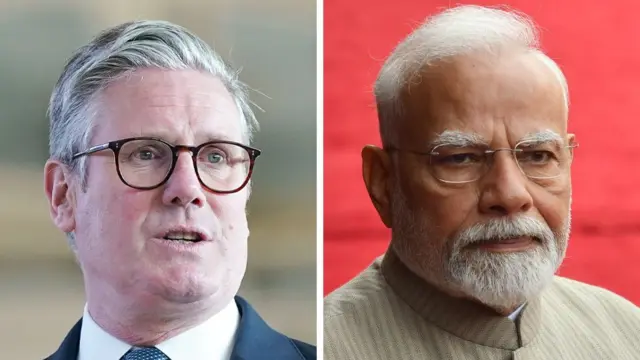Starmer teases trade deal announcement todaypublished at 09:23 BST 8 MayBreaking
Prime Minister Keir Starmer briefly references the trade deal with the US during a statement on defence this morning.
Starmer talks about working more closely with allies and describes the US as "indispensable" for economic and national security.
“As you know, talks with the US have been ongoing, and you will hear more from me about that later today,” he says.
In his statement, marking 80 years since the end of WW2, Starmer says he’ll act in the national interest, for workers, businesses and families “to deliver security and renewal for our country”.
Earlier, Downing Street confirmed Starmer will make an announcement about a deal with the US on tariffs today.
Starmer teases trade deal announcement today






